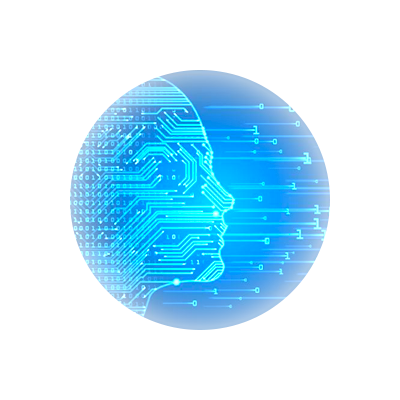Artificial Intelligence
Artificial Intelligence (AI) refers to the development of computer systems or machines that can perform tasks that typically require human intelligence. It is a broad field of study that encompasses various techniques, methodologies, and approaches to enable machines to exhibit intelligent behavior.
Key aspects of Artificial Intelligence include:
- Machine Learning: Machine learning is a subset of AI that focuses on the development of algorithms and models that enable machines to learn from data and improve their performance over time. It encompasses techniques like supervised learning, unsupervised learning, reinforcement learning, and deep learning.
- Natural Language Processing (NLP): NLP is a branch of AI that involves the interaction between computers and human language. It enables machines to understand, interpret, and generate human language, facilitating tasks such as language translation, sentiment analysis, chatbots, and voice assistants.
- Computer Vision: Computer vision is an area of AI that enables machines to understand and interpret visual information from images or videos. It involves tasks such as image recognition, object detection, facial recognition, and image generation.
- Robotics and Automation: AI is widely used in robotics and automation to develop intelligent systems capable of perceiving their environment, making decisions, and performing physical tasks. AI-powered robots are utilized in industries like manufacturing, healthcare, agriculture, and logistics.
- Expert Systems: Expert systems are AI systems that emulate human expertise in a specific domain. They utilize knowledge bases, rules, and reasoning mechanisms to solve complex problems and provide recommendations or decision support.
- Planning and Optimization: AI techniques are employed in planning and optimization problems, where machines analyze complex scenarios, consider constraints, and find optimal solutions. Applications include resource allocation, scheduling, logistics planning, and route optimization.
- AI Ethics and Responsible AI: As AI advances, there is a growing emphasis on ethical considerations and responsible AI practices. This involves ensuring fairness, transparency, and accountability in AI systems, as well as addressing concerns related to bias, privacy, and security.
AI has a wide range of applications across industries and domains, including healthcare, finance, transportation, gaming, cybersecurity, education, and more. It continues to evolve rapidly, driving innovations and transformative changes in various aspects of society and technology.
In the context of programming, there are several programming languages and frameworks used for AI development, including Python, R, TensorFlow, PyTorch, scikit-learn, and Keras, among others. These tools provide libraries and APIs that facilitate the implementation and deployment of AI algorithms and models.
